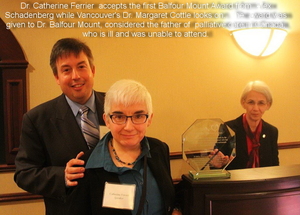As Canada moves toward legalized assisted suicide starting in February, Quebec will jump the gun and become the first province to permit doctors to euthanize patients beginning next month.
When Quebec’s Bill 52 takes effect on Dec. 10, physician-assisted suicide will be deemed an acceptable health-care option which doctors may offer to certain terminally ill patients. Still to be resolved, however, is the question of whether Quebec’s law conforms to the Criminal Code of Canada, which makes it illegal “to help a person commit suicide, whether suicide ensues or not.”
Quebec is proceeding on the grounds that it has jurisdiction over health care, and physician-assisted death is a medical option. Others argue that doctors in Quebec who help terminate a patient’s life can still be technically prosecuted under the criminal code.
 With assisted suicide slated to be legalized across Canada next Feb. 6, it’s unclear what is going to happen. Further confusing matters is resistance in Quebec’s palliative care and hospice communities to participate in assisted suicide, not to mention the urgency of the new Liberal government under Justin Trudeau to craft and pass assisted-suicide legislation between now and February.
With assisted suicide slated to be legalized across Canada next Feb. 6, it’s unclear what is going to happen. Further confusing matters is resistance in Quebec’s palliative care and hospice communities to participate in assisted suicide, not to mention the urgency of the new Liberal government under Justin Trudeau to craft and pass assisted-suicide legislation between now and February.
“It’s not possible,” said Alex Schadenberg, head of the Euthanasia Prevention Coalition. “We know it is not possible.”
Legislation became necessary when the Supreme Court of Canada ruled last February in the Carter v. Canada decision that existing laws on assisted suicide contravened the Charter of Rights and Freedoms. The Court gave Ottawa one year to amend two sections of the criminal code to comply with its ruling.
Speaking at an annual symposium on euthanasia, held this year on Oct. 31 in Montreal, Schadenburg said more time is needed.
“If there hadn’t been an election, it might have been possible,” he said. “Our concern is what the new law will actually say. The government has to come up with extremely well-defined legislation.
“While the court opens the way for assisted suicide, it provides no tools for Parliament to prevent error or to protect vulnerable people from being induced to commit suicide at a time of weakness. What becomes of this it is hard to know if you can’t define it.”
The new Liberal government is expected to ask the Supreme Court for a six-month extension.
More than 150 people from across Canada attended the one-day seminar in Montreal.
In one keynote speech, Vancouver’s Dr. Margaret Cottle said she wants government to “do the right thing, not the cheap thing.” That includes greater emphasis on palliative care.
Cottle said people should be made aware of the difference between palliative care and assisted suicide.
“If patients were to receive high quality palliative care, requests for physician-hastened death would be reduced.”
The conference heard that a recent poll in Quebec showed that 60 per cent of the province’s doctors oppose assisted suicide. Nationally the figure is as high as 73 per cent.
During the seminar Dr. Balfour Mount, considered the father of palliative care in Canada, was named the first recipient of an annual award that will be presented in his honour.

























Comments
Please login to post comments.